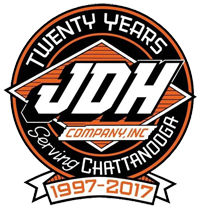There are three general types of Metal roof system applications:
- Architectural metal panel roof systems to shed water off steep-sloped roofs
- Structural metal panel roof systems with hydrostatic (water barrier) characteristics especially for low-sloped roofs, but also suitable for steep-sloped roofs
Metal roofing is a preferred alternative for sloped roofs, especially when durability and weather resistance are major concerns. The different systems are engineered not only to accommodate the slope of a structure's roof, but to provide pleasing aesthetics, since these roofs are often visible from the street level.
Architectural Sheet Metal is a specialized type of metal roofing, usually involving steep slopes. These roofs feature custom fabricated sheet metal flashing and trim and are often used for historic, retrofit projects. We use various gauge metals and various metal types, from pre-finished galvanized steel and aluminum to copper, stainless steel, lead and coated copper.
A built-up roof consists of plies of reinforcing material (organic felts, fiberglass mats or polyester), inter-ply layers of bitumen (asphalt or coal tar) and a finish surfacing, such as gravel or decorative rock, mineral surface cap sheets, or coatings. Owing to energy concerns, many built-up systems today incorporate rigid board insulation as well. Built-up roofing is one of the oldest and most durable systems available. Introduced during the 1840s, built-up ("tar and gravel") roofing remains the predominant system installed on low-slope ("flat") roofs. They are ideally suited for applications requiring a high level of redundancy.
Built-up Roofing System advantages:
- Surfacing materials can be coated with paint or other reflective materials to reduce the effects of UV radiation
- Coatings can help reduce heating and cooling costs
- Highly resistant to wind and hail
- Easy to repair
The repetitiveness of a built-up roofing system -- its layer upon layer nature -- provides both flexibility and durability. The number of plies and the materials used for surfacing can be varied to adapt the system to virtually any environmental or aesthetic concerns. For the same reason, a built-up roof is more forgiving of abuse after application than are many other roofing systems.
Modified Bitumen systems consist of asphalt with added modifiers for durability. These are either one- two- or three ply-systems, with two-ply being the most common. They are factory manufactured and combine the redundancy of built up roofing with the ease of application of a single-ply system.
- Styrene Butadiene Styrene (SBS) systems, usually installed with hot asphalts or cold adhesives
- Atactic Polypropylene (APP) systems, almost always installed using the torch method
Both SBS and APP systems can be reinforced with glass or polyester.
Advantages of a Modified Bitumen sytem include:
- Factory-manufactured rolls of roofing materials ensures quality control
- Expansion and contraction with movement of the building
- Variety of surface finishes to enhance resistance to oxidation and damaging UV rays
Single-Ply roofing systems are composed of insulation, a single ply membrane, flashings, and adhesive. Single-Ply is lightweight, consisting of a single layer of roofing over insulation. This makes them a great choice for retrofits. TPO, EPDM, and PVC are the three most common types of single-ply membrane systems.
ThermoPlastic Olefin (TPO) advantages include:
- Long-term durability of rubber
- Security of hot air welded seams
- Most environmentally friendly of the single-ply systems
- No dioxins or chlorine produced
- Membranes come in varying thicknesses and roll widths to meet specific requirements
Ethlyene Propylene Diene Terpolymer (EPDM) advantages include:
- Technology proven effective for more than three decades
- Expands and contracts with the building
- Minimal maintenance
- Withstands extreme temperatures
- Resistant to UV radiation and ozone
Polyvinyl Chloride (PVC) advantages include:
- Among the easist of the single-plys to install and heat-weld together
- Resistance to various chemical effluents
- Superior resistance to punctures and tears
- Able to withstand exposure to concentrations of grease, oils and various fuels
- Preferred solution where acid rain or other acidic outflow is present

